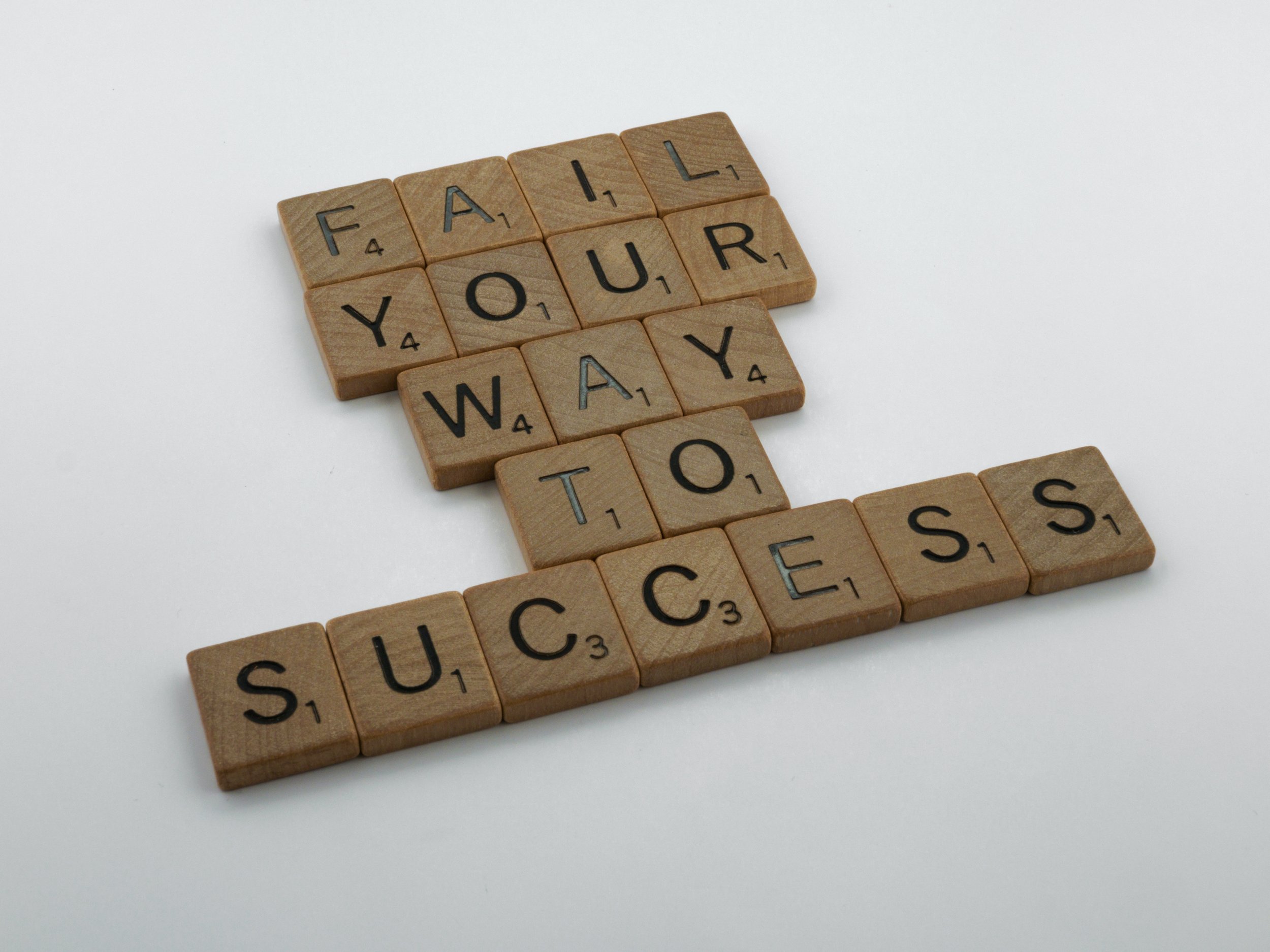Embracing Failure
Embracing Failure
Ah, fear of failure. One of the great universal human experiences. Part of my job as a music teacher is to arm my students to battle this fear. I guess some people don’t experience it very much. Some suffer unduly from it. Everyone can build up resistance to it and skills to defeat it, and music lessons are a great way to do that.
When you study music, you will fail. Repeatedly. Forever. There are nicer things to call it than “failure,” of course. You can call it a learning experience or a growth opportunity, but I’d rather be blunt right now and use the F word. Anytime you don’t get the result you aimed for, from grand goals down to the smallest action, that’s what I mean by failure.
There is no learning without failure. If you can’t face the possibility of failure, you will never progress, in music or in anything.
Why is failure so scary? It all depends on what meaning you assign to failure. So many of us take failure personally. We read more into it than we should. We think, “I attempted this, and I failed. I’m a failure!” If you want to turn failure to your advantage, start by unlearning this line of thinking. A single event does not define a person; one action is not a litmus test for your value as a human being.
How can you get yourself to accept failures as necessary and beneficial? Reframe your experience of failure by changing the messages you give yourself. Instead of “I’m a failure!”, try:
“I haven’t succeeded YET”
“I’m learning what doesn’t work”
“I’m not done working this out”
“Mistakes are part of the process”
“I’m working my way up to success”
“This mistake is not the end of the journey”
“Failures don’t take away from my achievements”
“Failing doesn’t define me”
“Mistakes can’t stop me from trying again”
Positive self-talk like this can help, but we all know it isn’t easy to sit with the feeling of failure. It’s hard to accept that you haven’t achieved success yet. It’s hard to keep trying when you feel like the truth is that you suck.
I’m here to tell you, it’s okay to suck. It’s okay!
Being amazing at something isn’t the only thing that counts. Everyone sucks at something. And everyone sucks AT FIRST. Every expert starts as an amateur. People who are amazing at a certain thing, I promise you, they used to suck at it. When I was 8, I sucked at piano. I hadn’t learned yet! I have very much learned since then. When I was a teenager, I sucked at classical singing. It didn’t stop me from practicing, trying to learn. There are things I do that I still suck at and possibly always will suck at, like boxing and getting out of bed on time.
I still don’t enjoy the experience, but I’ve made my peace with sucking, because I truly believe that my good qualities, the things that make me who I am, can’t be compromised by my shortcomings. And while, I admit, I still fear failure and the embarrassment and frustration it might bring, I’m also ready to embrace it as part of the process of learning and improving.
I have to wonder how I would ever have made friends with failure if it weren’t for music lessons. I was what they called a gifted kid; everything in school came easily to me, so by the time I was a preteen, I hadn’t developed any tolerance for frustration or hard work. Not gonna lie, I was also “talented” at piano, but no matter how easily you learn music, you still have to try and fail over and over and over every time you learn a new piece.
I learned from my failures every day when I practiced, and I think that may have been the only experience from my first decade of life that actually prepared me for adulthood. My piano lessons were where I learned that my errors could be shed like an old skin and left behind, if I kept trying. No matter how poorly I played a piece when I first learned it, I knew that early stage was the foundation on which I would build a successful performance. I believed this was true, not because someone told me so, but because of the countless times I had lived the experience of failing, learning, and then succeeding.
No one believes that making lots of mistakes is how you learn just because someone told them it works this way. The only way to really believe in this learning process is to experience it. Music lessons are guaranteed to give you that experience. Failure is a necessary stage of every achievement, and it’s not that bad once you get used to it! Lean into it, and you can develop the skills to be a lifelong learner in any and every aspect of your life.

